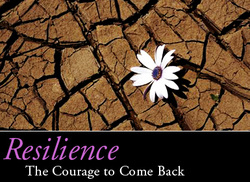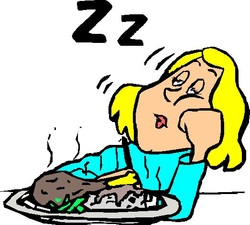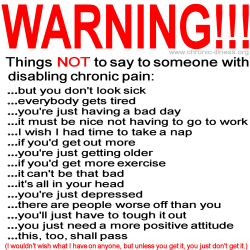Hey everyone! I apologize for the lack of posts, I am still under the weather. Whatever this cold/flu thing is, it has wiped any energy I normally have out of my system. I just saw this part of the speaker series featuring Ellen Lenox Smith, and I though you might enjoy it. I saw Ellen speak at the EDNF conference, and found her to be an engaging speaker, and an amazing person all-around. Speaker Series.
1 Comment
 This is the time of year when we all talk about making our resolutions for the new year. Since spoonies like us cannot resolve to "be healthy" (wouldn't that be nice!), I've come up with a list of resolutions that are applicable for those of us with chronic illness and chronic pain:
 I've realized that in the past 2 years, I've withstood a ridiculous amount of medical procedures, many of which I wouldn't wish on my worst enemy (chest tube, anyone?). I've also battled with insurance companies, disability, non-believing physicians, and dubious friends, family, and co-workers. Some of these skirmishes are ongoing, some probably will always be there. But even through the frustration and the daily pain, I try to keep moving forward. I have been called a "tough cookie" many times, and I believe that living each day with chronic pain and illness has developed the resilience I now have. It makes sense that spoonies like us have to be resilient; it becomes a trait necessary to survive with chronic pain and illness. Resilience is the only way we can function and live anything close to a "normal" life. It is how we can bounce back after a hospitalization, clean the house during a flare, educate physicians, and care for others. We are spoonies, are we are resilient!
 Hello and happy belated Thanksgiving! I have not been online all that much recently, as I've been alternatively spending time with family and attempting to recover and heal myself for the next visit. I'm still learning how to pace myself properly during the holidays, so it has been a lot of early nights and later mornings for me. Which is OK--I feel like the holiday season, especially this year with Thanksgiving and Hanukkah overlapping, and and Christmas so close--is a marathon. Your family will want you there for the finish, so remember to take care of yourself!
 Validation. It's a word that I've used more and more since being unofficially, then officially, diagnosed with Ehlers-Danlos Sydrome, Fibromyalgia, and POTS (and a plethora of secondary illnesses that go hand-in-hand with both). It seems that even with that piece of paper from a doctor's office with a diagnosis in black and white, getting the type of validation needed from family, friends, other doctors, etc., becomes a Herculean task.
And why should I (and you) care about being validated? Those of us with chronic illnesses need the understanding of others (the so-called "Normals") around us to be properly physically and emotionally cared for and treated. EDSers especially--and others with rarer types of disorders--need the validation that their disorder is real, that their pain is real, and that others believe their disabilities. Otherwise, we are left with "it's all in your head" syndrome. Thus, validation is important because, without it, no one can truly address our physical and emotional needs. We absolutely need the understanding of physicians in order to get to the root of physical symptoms and to flesh out treatment plans. However, we also need the validation of friends, family, and community to help and support us emotionally. The validation of those close to us helps to get past the frustration of when other Normals find it comforting(?) and/or helpful(?) to say things like, "no pain, no gain!" or "if you'd just get out of the house more you'd feel much better" or "have you tried [fill in the blank] vitamin?". Even when we are coping with illness well, and have come to terms with EDS and the emotions involved, one comment or look can send us reeling back to when we were first sick and dealing all the initial skepticism. Finding validation from all sources is a difficult and never-ending road. It is, of course, crucial that EDSers find the validation they need from the important sources--mainly the physicians who are in charge of your treatment plan. Having validation from close family and good friends is important; however, you must remind yourself that not everyone is willing to listen and believe. You may never find validation from certain individuals. And that is OK. Remember that the way they respond to you is indicative of something wrong with them--not something wrong with you. And remember that the entire EDS community believes and supports you! |